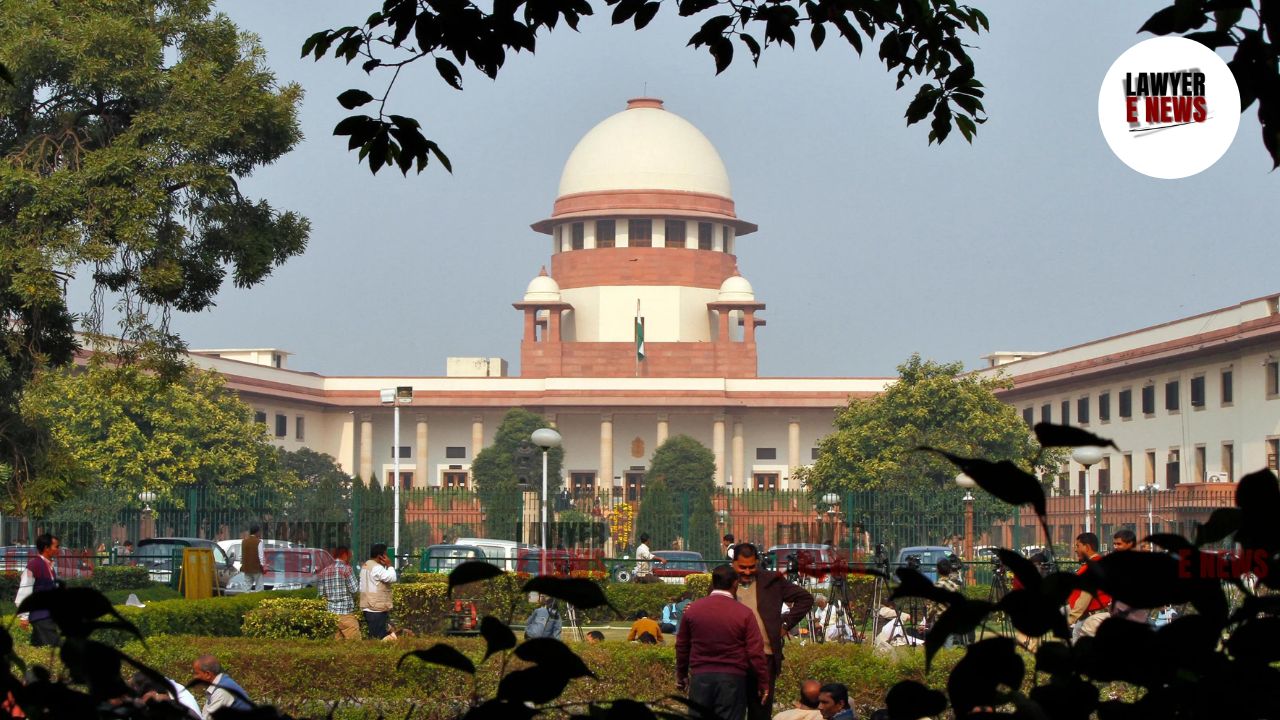-
by Admin
15 February 2026 5:35 AM



Supreme Court Rules Against Granting Relief After 28-Year Delay in Plot Allotment, ruled in favor of the Indore Development Authority (IDA), setting aside orders of the State Consumer Commission and the National Consumer Disputes Redressal Commission (NCDRC). The Court held that the respondent’s claim to possession of a plot could not be enforced after an inordinate delay of 28 years and due to repeated defaults in payment.
The bench, comprising Justice Satish Chandra Sharma and Justice Bela M. Trivedi, held that the Consumer Commissions overstepped their jurisdiction by granting relief to the respondent despite his failure to comply with contractual obligations and judicial orders.
The dispute arose from a Notice Inviting Tender (NIT) issued by the IDA on October 5, 1994, under Scheme No. 54, for the allotment of residential plots. The respondent was allotted Plot No. 314 on January 2, 1995. As per the payment terms, he was required to pay 50% of the premium within 30 days and the remaining 50% in 12 quarterly installments. However, the respondent defaulted on the payments, leading to the cancellation of his allotment on March 22, 2000.
Aggrieved, the respondent approached the Madhya Pradesh High Court, which restored the allotment in 2006, subject to payment of outstanding dues of ₹12,02,592 within 30 days. Despite this opportunity, the respondent made a partial payment of ₹5,72,782, far short of the outstanding amount. Even when the IDA reduced the demand to ₹11,04,948 in 2009, the respondent failed to comply. Instead, he filed a complaint with the District Consumer Forum, which dismissed his claim in 2015 for non-payment. The respondent then approached the State Consumer Commission, which, through an interim order in 2017, directed the IDA to accept the payment and hand over possession. This order was upheld by the National Commission in 2023, prompting the IDA to approach the Supreme Court.
The Supreme Court strongly criticized the State and National Consumer Commissions for granting relief despite the respondent’s prolonged defaults. It held that procedural propriety was violated, as the State Commission granted final relief through an interim order.
The Court observed that the delay of 28 years nullified any enforceable claim over the plot. The respondent had repeatedly failed to comply with the terms of the allotment, the High Court’s 2006 order, and even the reduced demand of 2009. The IDA, the Court noted, had shown “magnanimity” in reducing the outstanding amount, yet the respondent sought further concessions.
The Court clarified that the role of consumer forums is limited in cases of contractual defaults, and the Consumer Protection Act cannot be used to enforce claims where the delay is attributable to the claimant’s non-compliance.
The Court held that the State Commission’s interim order (15/12/2017), which directed the IDA to accept payment and deliver possession, was procedurally flawed. Interim orders, it emphasized, are not meant to grant final relief.
The National Commission’s order (29/03/2023) was also set aside for ignoring the fundamental issue of delay and overstepping its jurisdiction. The Court reiterated that enforcing allotment after such a long delay would be contrary to public interest and fairness.
The Supreme Court allowed the appeal, setting aside the orders of the State and National Commissions. It directed the IDA to conduct a fresh tender process for the plot and ensure allotment through auction or by following the applicable rules. The decision underscores the principle that procedural propriety and adherence to timelines are essential in disputes involving public property.
Date of Decision: December 13, 2024
